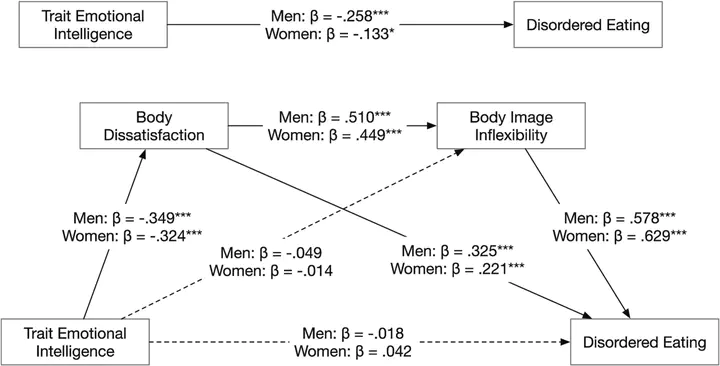The relationship between trait emotional intelligence and disordered eating as mediated by body dissatisfaction and body image inflexibility

Abstract
This study aimed to explore the relationship between trait emotional intelligence and disordered eating by proposing and testing the mediating roles of body dissatisfaction and body image inflexibility. A total of 500 Chinese adults (48.8 % women) completed questionnaires for assessing trait emotional intelligence, body dissatisfaction, body image inflexibility, and disordered eating. Correlation analyses were conducted to evaluate the relationships between the study variables. Mediation analysis was performed to examine the mediating roles of body dissatisfaction and body image inflexibility in the relationship between trait emotional intelligence and disordered eating. Multi-group analysis was further conducted to assess the invariance of the mediation model across men and women. Correlation analyses revealed significant bivariate relationships among the four study variables. In both men and women, the relationship between trait emotional intelligence and disordered eating was fully mediated by body dissatisfaction and body image inflexibility. Multi-group invariance analysis showed that this mediation model was invariant across men and women. The findings shed light on the potential mechanisms in the relationship between trait emotional intelligence and disordered eating. In developing interventions for reducing disordered eating, the findings of the current study may be considered to improve intervention effectiveness.